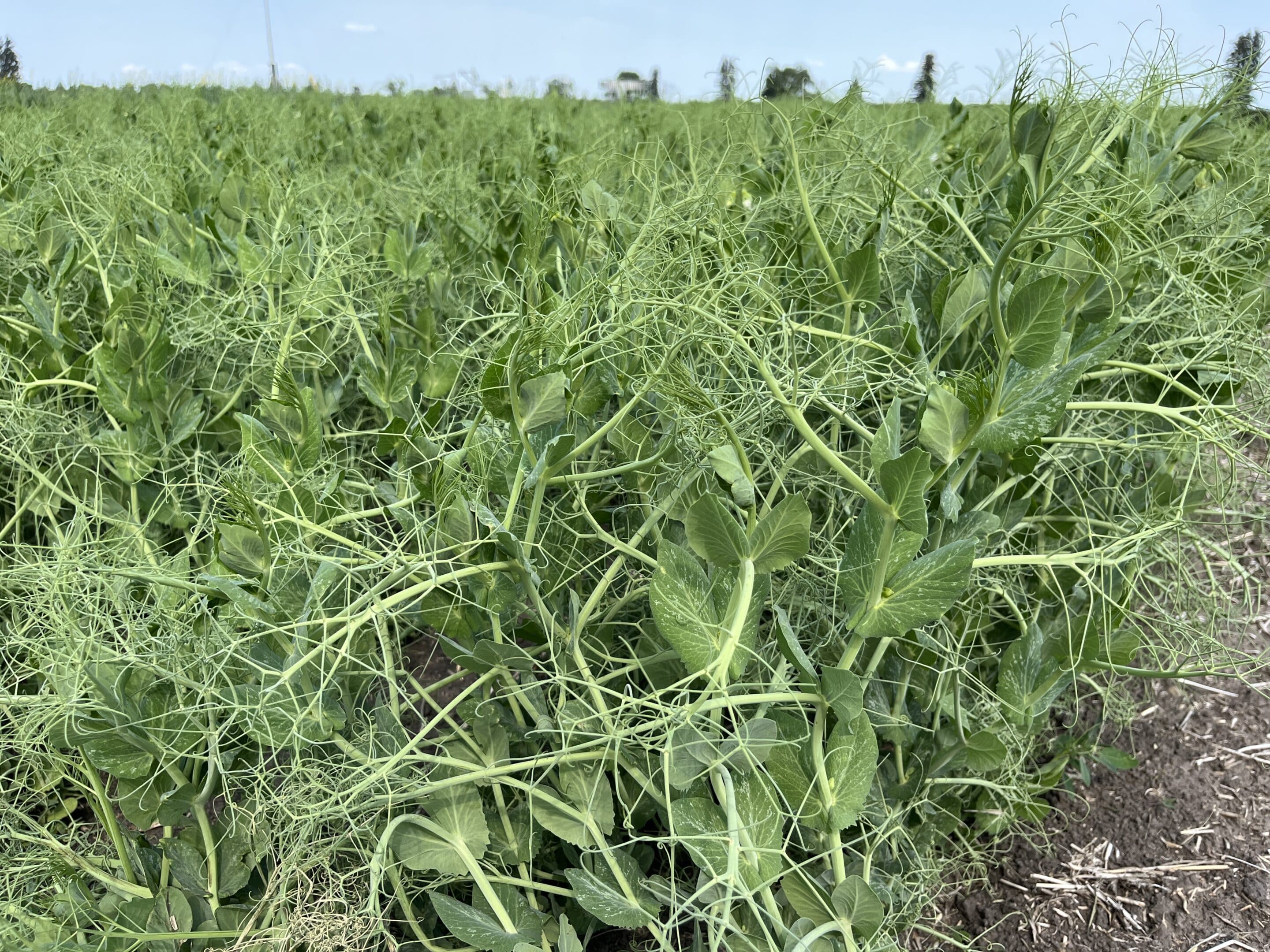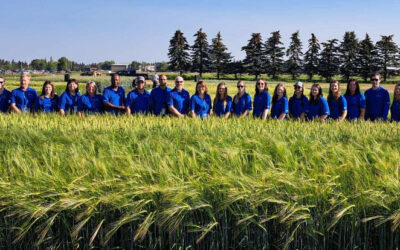As part the Genome Canada-led Climate-Smart Agriculture and Food Systems (CSAFS) initiative the University of Calgary will receive funding to use state-of-the-art genomic technologies to increase the quality, profitability and resilience of field peas, a Sept. 6 news release said.
The release noted increased uptake of field peas in crop rotations reduces nitrogen fertilizer use and can lead to a 22 to 37 per cent reduction in greenhouse gas emissions while contributing to economic growth, jobs and exports.
“Corteva Agriscience is committed to climate smart cropping systems and we are thrilled to join the PeaCE research team and advance pea breeding through our phenotyping and analytics infrastructure,” Sara Lira, senior research scientist with Corteva Agriscience, said in the release.
The research is part of the Genome Canada-led CSAFS projects with Genome Alberta, along with regional partners, investing in the projects. The goal of the projects are to reduce the carbon footprint of Canada’s food production systems by building their resiliency, environmental sustainability and economic growth potential, the release said.
“Alberta is looking for innovation to move our province towards a carbon-neutral economy by 2050, and these projects represent significant potential for the agriculture sector to both lower emissions and expand market opportunities through application of genomics technology. Genome Alberta is pleased to invest in Alberta-made solutions for today and tomorrow,” David Bailey, president and CEO of Genome Alberta, said in the release.
The field pea project along with a livestock grazing project will receive total funding of over $13.1 million.





